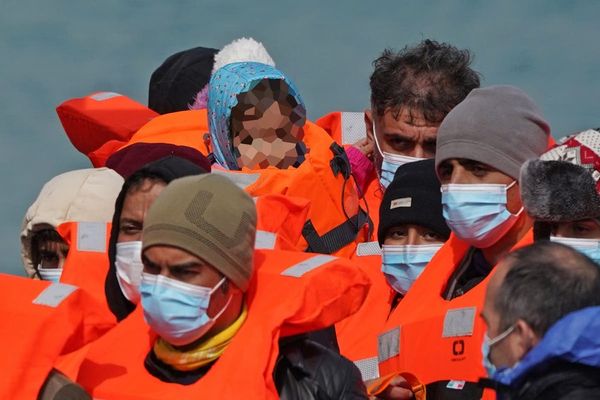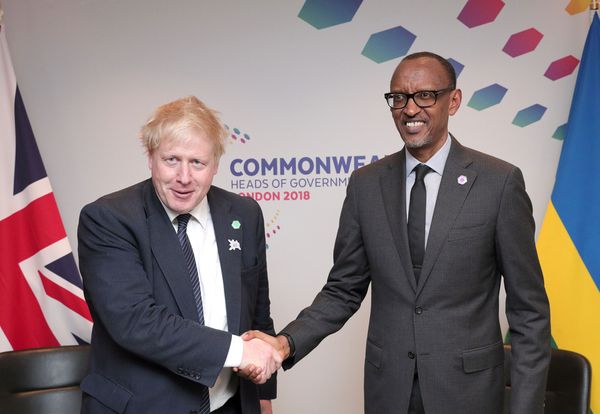
Small boat arrivals on the Kent coast have expressed fears that they will be removed from the UK and transferred to Rwanda, after hearing the government’s announcement that asylum claims will be processed offshore.
“If they send me to Rwanda, I will not go. I will die here, I will take my life,” Jemal, a new arrival from Eritrea, said. “Do you know how many thousands of miles I travelled to be here? How long I was in [the] desert …? To reach this point, to be here, we all had to make so many sacrifices. A lot of [people] lost their lives on the sea. I left my country now – I cannot go back to Africa.”
“No one knows Africa like we Africans do,” another man from Eritrea said. “Africa is Africa – there is no freedom there. Rwanda is like Eritrea, it does not keep human beings safe. Here in Europe, you are free.”
Of the group of 22 migrants, all said they would take their own lives, rather than face removal from the UK to Rwanda.
“100%, people will lose their lives by themselves,” a man from Sudan agreed. “Some, they will go up to the hills [the cliffs] here, some they will go to the train, to the sea, to any place. This one is the human rights problem, not only in Rwanda.”
“I don’t know where Rwanda is – all I know is it is dangerous there,” said a member of the group from Iraqi Kurdistan, gathering around a map.
“Last night I could not sleep … thinking, thinking all the night what will happen to me. We do not know the culture in Rwanda. It is so different from what we know.”
Many among the group said they believe that only new arrivals from Africa would be transferred to Rwanda; those from other nationalities felt confident they would not be sent there.
“I come from Iran – the government, they will not send us to Africa … only Africans,” a man from Iranian Kurdistan said. The Eritreans and Sudanese said they also believed only Africans would be transferred to Rwanda, if the plans went ahead.
The group had mixed views about whether the prospect of removal from the UK would act as a deterrent to those attempting to cross the Channel.
“I think it will stop people from coming here,” an Eritrean man said. “Maybe they will decide to stay in France, maybe go to Germany, places like [that].”
“People will always want to leave, they will always need to live safely,” another man said.
Many said they thought the Rwandan government had struck the deal with the UK for economic reasons.
“It is for money. Rwanda is a small country. It is a poor country. They need British money. It is only for this.”
While all the new arrivals said they hoped the government would drop its plans, they thought there was a high likelihood they would go ahead.
“Everything, it is easy for them. I think they will do it,” they agreed. “Money, it is not a problem here [in the UK]. It is a problem for Rwanda – that is why this is happening. But we hope, we hope, they will cancel it.”
In the UK, Samaritans can be contacted on 116 123 and the domestic abuse helpline is 0808 2000 247. In Australia, the crisis support service Lifeline is on 13 11 14 and the national family violence counselling service is on 1800 737 732. In the US, the suicide prevention lifeline is 1-800-273-8255 and the domestic violence hotline is 1-800-799-SAFE (7233). Other international helplines can be found via www.befrienders.org.










